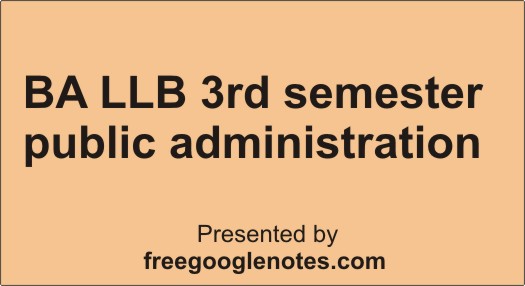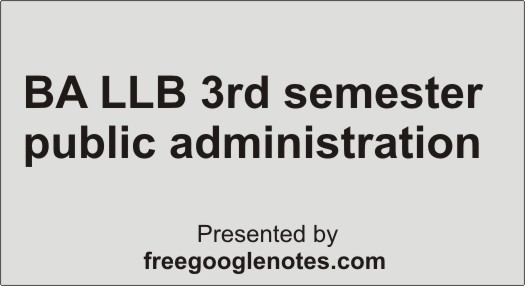DICTATORSHIP
Q. 1. Describe the essential features of Dictatorship. Is it in any way an improvements on democracy.
Ans.
Dictatorship Even a causal observer could see between the two World Wars a procession of crumbling democracies and the emergence of dictatorships in many lands. In Germany, Italy, Japan, and Russia the soil was too hard for democracy to strike deep roots, and the storm of crisis in the post-First World War swept off the tender tendrils of democracy. The rise of os dictatorship in those countries was the product of socio-political tension and crisis which the First World War created. In the hour of crisis man looses faith and graves for new refuge when dictatorship emerges as the archangel.
“The war-bred crisis of Europe precipitated dictatorships, in countries that had a brief on relatively brief experience of democracy.” The Treaty of Versailles was like a dead-weight on the national life of Germany. It crippled Germany both politically and economically. The mounting unemployment, the hyper-inslation, the complete break-down of the economic system and above all, the political humiliation led to loss of faith of the German people in democratic values and tradition. ‘ls created a moral crisis, The people of Germany, in their search
for national glory and security, found in Hitler a powerful champion of their cause. Italy in her desperate bid to compensate for the losses suffered during the war accepted the leadership of Mussolini. Faced with the problem of insufficiency of land and an expanding population, Japan had to embark upon a policy of expansion ; the dictatorship arose to give the policy necessary thrust and drive. Mass dissatisfaction for which the war was greatly responsible, coupled with Lenin’s masterly understanding of the objective situation and his unrivalled strategy, led to the establishment of communist dictatorship in Russia. The world-wide depression in 1930’s led to an economic collapse which further discredited the democratic system, and strengthened the forces of dictatorship.
The failure of the democratic legal framework to successfully tackle the problem of popular dissatisfaction brought about the extra-legal element of dictatorship to set things right. Only some countries like England with a rich democratic heritage could successfully tide over this crisis. The reason for the rise of dictatorships in the crisis-ridden period between the two World Wars could be discovered in ‘the psychology of crisis conditions’. As Lipson observes “….. a society in crisis will be urged to submit to a pattern of discipline and thus reassert its unity and solidarity. Authoritarianism will be represented as a source of strength because it is supposedly efficient, single-minded and fast-moving.” Dictatorship – Traditional and Modern
The institution of dictatorship which was prevalent in ancient Rome is basically different from its modern form. In Rome the dictatorship was a temporary political expedient to tide over an emergency. It was never considered to be a permanent political institution. When the emergency passed off, the dictator had to relinquish the seat of power. Secondly, the Roman dictatorship did never involve a break from legality. It was a constitutionally sanctioned political authority. As Maclver observes, “The Roman dictatorship was a constitutional device under which the constitution was suspended during a grave crisis of the state.”
In contrast, modern dictatorship is an extra-constitutional development, and it involves a sharp break from legality and tradition. It is the product of force. However creates as well as sustains it. Secondly, modern dictatorship is permanent in its nature. The effort of
a modern dictator to remain in power permanently through a planned
process of physical and psychological coercion distinguishes modern dictatorship from the traditional. Thirdly, a modern dictator ‘rests his power on the active support of an associated class.’ He rules with the active assistance of an organised political party. Even a superficial survey of dictatorship in Fascist Italy, Nazi Germany and Communist Russia and China will show the prevalence of all these distinguishing characteristics of modern dictatorship. I. Monism vs. Pluralism
Dictatorship blurs the distinction between society and the state, and between the state and government. The identification of society with the state, and of the state with government justifies total control of human life by the political authority. The ruler controls the whole complex of human needs and interests. Autonomy of different spheres of life is invaded by the state. Totalitarianism is well expressed by Mussolini : “Everything for the state, nothing against the state : nothing outside the state.” Hence, monism is complete in the totalitarian state. The ruling authority in democracy, on the other hand, because of its clear distinction between society and the state, and between the state and government, does not encompass the whole life of man. Democracy is essentially pluralistic where the autonomy of different spheres of life is respected and tolerated. It “recognises a variety of levels of personal and collective endeavour, which are altogether outside the sphere of politics.”
II. Ideological Uniformity vs. Ideological Multiformity
Ideological uniformity is the very foundation of the totalitarian state where, as Justice Holmes observes, there is no free trade in ideas. It naturally leads to unity of power. All power is deposited and concentrated in one man or one party. Totalitarian state is one-idea state and hence, it is one-party state. As Barbu observes, “The party moulds the individual and his society according to an idea which comprises in itself the present and the future possibilities of man. The idea of society would sooner or later suppress every empirically constituted and naturally grown form of society.” Plurality of idea is, contrarily, the core of democracy. Because of ideological multiformity democracy is characterised by co-existence of different political parties engaged in peaceful competition. III. Elitism vs. Equalitarianism
Power and privilege are functionally related to each other. – Monopoly of power inevitably leads to monopoly of privilege. In
totalitarian state as Lipson observes, through monopoly of one party a new type of privilege is established to which political provides the entry. Djilas’s The New Class gives an eloquent express to this point of view. The totalitarian system is profoundly oligarchical where different grades of rank and privilege are found to exist Democracy, on the other hand, prevents the growth of permanent monopoly of power through presentation of alternative parties. Hence. no particular class of citizen can permanently enjoy special privileges.
IV. Authoritarianism vs. Responsibility
Totalitarian system is essentially authoritarian. The ruling class which is the custodian of all authority owes no responsibility to the people. The cult of dominance and leadership is prized above everything. Both fascism and communism believe in an inalienable and revolutionary right of the party to guide the destiny of the people. “Both are authoritarian in the sense that, as in the army, authority resides in a few who are responsible for, but not responsible to, the many.” In a fascist or communist dictatorship the ruling party is endowed with so much supremacy that it “absorbs the state, instead of merely acting on its behalf.” Democracy, on the other hand, is a basically responsible government answerable to the people. In democracy the responsibility of the authority to the people is secured through free organisation of rival opinions and periodical elections.
V. Omniscience vs. Pragmatism
Dictatorship, by proclaiming infallibility of a particular doctrine and by assigning a pre-determined primacy to political authority, creates a society of myth. In such a system reason tends to die out, and the people are indoctrinated into blind obedience to the political authority. Through a peculiar amalgam of education, propaganda and coercion, the myth of authority is created and eventually, the people develop a habit of blind obedience to the authority. As Mussolini bluntly said, “we have created out myth. The myth is a faith, it is passion. Our myth is the nation …… ” Democracy denies the infallibility of a man or of a doctrine. As Finer observes, “….. democracies admit the pragmatic nature of their search for perfection, and recogrize that of perfection there is no single exclusive principle. Yet they surmise that if such there should be, it is one yet to be discovered in a process of evolution, and that if the unfolding is to arrive at soundness it must be founded on tho unlettered expression and interplay of all opinion.”
Merits of Dictatorship
Certain advantages are claimed parties create cleavages in the society by magnifying the points of disagreement. This is prejudicial to the cause of national unity Contrarily, in a dictatorship only one party exists, and hence, the national life does not suffer from any inner split. By eliminating the sources of conflict dictatorship lays down a sound foundation for national solidarity.
Dictatorship admirably answers the needs of an emergency. To effectively meet an emergency calls for quick decision and immediate mobilisation of all social forces. This requires a fast-moving unified political machinery. Under a dictatorship, because of unity of power, a decision can be easily and quickly reached without a long-drawn-out discussion. Its political machinery can immediately be geared to the requirements of an emergency.
Historically, dictatorship is associated with administrative efficiency and quick economic progress. With total control over individual life, it becomes easy to accelerate the rate of economic and technological growth in dictatorship. The spectacular economic and scientific development in Soviet Russia during the last four decades speaks eloquently of the efficiency of the dictatorial system. However, this should not be generalised. A number of dictatorships are notorious for the inefficient and corrupt rule. What is, therefore, important is not the ambit of power, but its use for developmental purposes.
Demerits of Dictatorship
“The classic vice of all dictatorial system is their basic assumption of the superiority and infallibility of those in power.” Those in authority, because of their claim to infallibility, feel tempted to glorify power. This, in its turn, is sure to produce some adverse reactions. Power, when glorified, has a tendency to grow into despotism. As Action said, power corrupts and absolute power corrupts absolutely. Secondly, some major mistakes in decision-making and execution are not unusual in dictatorship as the power-conscious rulers are not confronted with necessary limits and criticisms. The claim to infallibility inevitably increases the possibility of errors. Through interplay of opinions the errors can be minimised.
The dictatorial state is a one-idea state which is necessarily hostile to ideological multiformity. Freedom of thought is allowed only within the rigid frame of the ruling ideology. Every individual must conform in the standards set by the state. The denial of freedom of thought
amounts to the denial of the opportunity for articulate expression of personality in the absence of which man cannot realise his best sell. Power is a mixture of force consent. Since the source of power in dictatorship is not consent of the people, it has to maintain power through continuous employment of force. Force without consent becomes misdirected, and ultimately shakes the foundation of the state. Democracy and Dictatorship : Scale of Preference
Eminent authorities have expressed their belief in the permanence of democracy. For instance, Laski writes : “Democratic government is doubtless a final form of political organisation in the sense that men who have once tested power will not, without conflict, surrender it.” At the other extreme, the critical literature exhibiting a growing skepticism about democracy has assumed formidable proportion. Maine’s Popular Government and Lackey’s Democracy and Liberty contained the complaints of a dispossessed aristocracy against an unwanted democracy. Even Bryce, in spite of his strong democratic sympathies, anxiously expressed : “When the spiritual oxygen which has kept alive the attachment to liberty and self-government in the minds of the people becomes exhausted, will not the flame burn low and perhaps flicker out ?” The clash of two rival ideologies – democracy and dictatorship-occupies the centre of man’s interest in the contemporary world. They are engaged in an open competition for the allegiance of mankind. Some thinkers predict the passing away of democracy and all-round triumph of dictatorship. But the democrats are full of hope and optimism, and passionately challenge. Bui, whether democracy will survive or not is a matter of empirical analysis, and not of political astrology
In any evaluation of the two rival ideologies dictatorship is believed to have a distinct advantage over democracy. Dictatorship, because of its total and absolute creed, is efficient in mobilising all social energy for solving the emergent problems of the society. This sometimes makes possible accelerated economic and technological progress. But dictatorship has some major vices. First, because of the absence of any major check and opposition, the governing class .has a tendency to glorify power which ultimately grows despotic. Moreover, when a body of men become extremely power-conscious, they are apt to commit serious errors for which the country may suffer. Secondly, in a dictatorship people have no practical remedy for the injustice and Inefficiency of the government. In the absence of the opportunity for
organising alternative ways of political thinking the people have no freedom to choose a new government. The denial of the freedom to make the unmake government compels the people to ‘stomach’ every injustice meted out by the ruling class. Thirdly, dictatorship is not conducive to the mental upliftment of man. Government, as Mill said, is a great influence acting on the human mind, according as it elicits or fails to elicit its energy. Dictatorship, as it does not afford the people any real opportunity to participate in the process of government, fails to enlist for its operation active wills and energy of the people. Because of structural rigidity its framework does not permit of the elimination of its innate vices.
Democracy, in comparison, possesses some abiding values. The inter-locking system functioning through multiple checks minimises in democracy the possibility of overgrowth of power, and makes continuous enjoyment of freedom by the people possible. Democratic government, as MacIver observes, is less dependent on psychology of power, and consequently, the possibility of the government committing mistakes is reduced. Secondly, democracy allows the people adequate remedy against governmental injustice. The people have the necessary freedom to make or unmake the government. This makes the government abide by the interests of the people. Lastly, democracy, by allowing the people to actively participate in the process of government, aide in their mental development.
A comparative evaluation of the rival ideologies leads to one conclusion : democracy is preferable. It is desirable form of government. But what is desirable may not be durable. There are some undesirable forces in democratic countries which threaten the foundation of democracy. Firstly, democracy, because of its association with the liberal creed of non-intervention is characterised by anarchic conditions of unplanned economy. The cyclical ups and downs in industrial activity, the constant fear of mass unemployment and gross distributive injustice tend to destroy the vitality of democracy. In the opinion of Walter Lippmann, these things “breed the poisons of self-government.” Secondly, the psychology of crisis-conditions sometimes characterises the democratic regime. It emerges from periodical economic break-downs and occasional war-situations. The masses, it is said, are haunted by the ghost of insecurity and anxiety. Thirdly, the impersonal forces of modern economy lead to increasing isolation and powerlessness of the individual. This results in the imbalance of man. It is often found
that in a democracy there is dearth of adequate institutions for correcting this imbalance. Besides, democracy’s decision-implementing machineries are not so fast moving and efficient :
decision-making and as to effectively deal with the problems confronting the modern state. «Democracy” as Barker writes, “is not in its nature congenial to rapid decision”, nor is its administrative machinery effective for quick implementation. All these factors create instability and tension within the structure of democracy which are exploited by6 the anti-democratic political elements.
In a class-and-caste ridden underdeveloped society, where poverty and unemployment are widespread, democracy becomes increasingly feeble. The objective conditions in this type of society hinder, wḥat MacIver sạys, the process of maturation which democracy badly requires. When men are deprived of bare livelihood, the inter-class or inter-caste tension reaches the point of a crisis. Politics becomes ic.creasingly factional, and democracy loses its proper environment.
The future of democracy depends on its ability to find out new ways and new institutions which a view to eliminating tens:ɔn from its structure. Firstly, comprehensive planning is a necessity. The organisation of planning will introduce the much needed element of economic stability and justice in the society. This in turn will prevent the emergency of any major crisis in the society which nurses the forces of dictatorship. But planning demands a certain measure of conformist behaviour. As Mannheim says, “Five-or-ten year plans demanding prior agreement not only on the starting point but on the sequence of subsequent steps have become the pattern of social change.” Hence, an agreement on the basic objectives and technique of planning voluntarily created by the political groups has to be built up. The parties must give up their traditional ways, and develop an attitude of increasing compromise in the sphere of economic planning. Secondly, planning from top must be combined with active participation from below. Decentralisation is a necessary complement to economic planning. This will correct the centralised tendency inherent in planned economy aid create popular enthusiasm which is essential for economic development. Thirdly, democracy must find out new ways of toning up its administrative machinery, of introducing more expertness and efficiency in its scale of operations. Lastly, there must be increasing political education of the people in anti-democratic sources and technique. This will make
for popular detection of anti-democratic elements which often wear a democratic mask,
Democracy, if it is to survive, must have a mature awareness of the major problems of the contemporary world and must explore effective ways of tackling those problems. In brief, democracy to meet the totalitarian challenge must be combined with the core of socialism its stability-and-justice consciousness. At the same time, it must reject the totalitarian implications of socialism. The face of democracy should be polished, and not disfigured, through the alliance with socialism, The problems that confront democracy in the underdeveloped countries of Asia and Africa are all the more acute. Democracy in these countries has been alternating between hope and despair. The real problem before democracy in these regions has been to assure a minimum standard of living to the teeming millions suffering from poverty and to endear the government to the masses in general so that estrangement between the rulers and the ruled — “the political gap” – can be corrected. The remedy lies in “a conjunction of moral consensus and the machinery of government …. the existence of citizens, the attachment of the citizens to each other and to some symbols of the entire society, and an effective government.”









